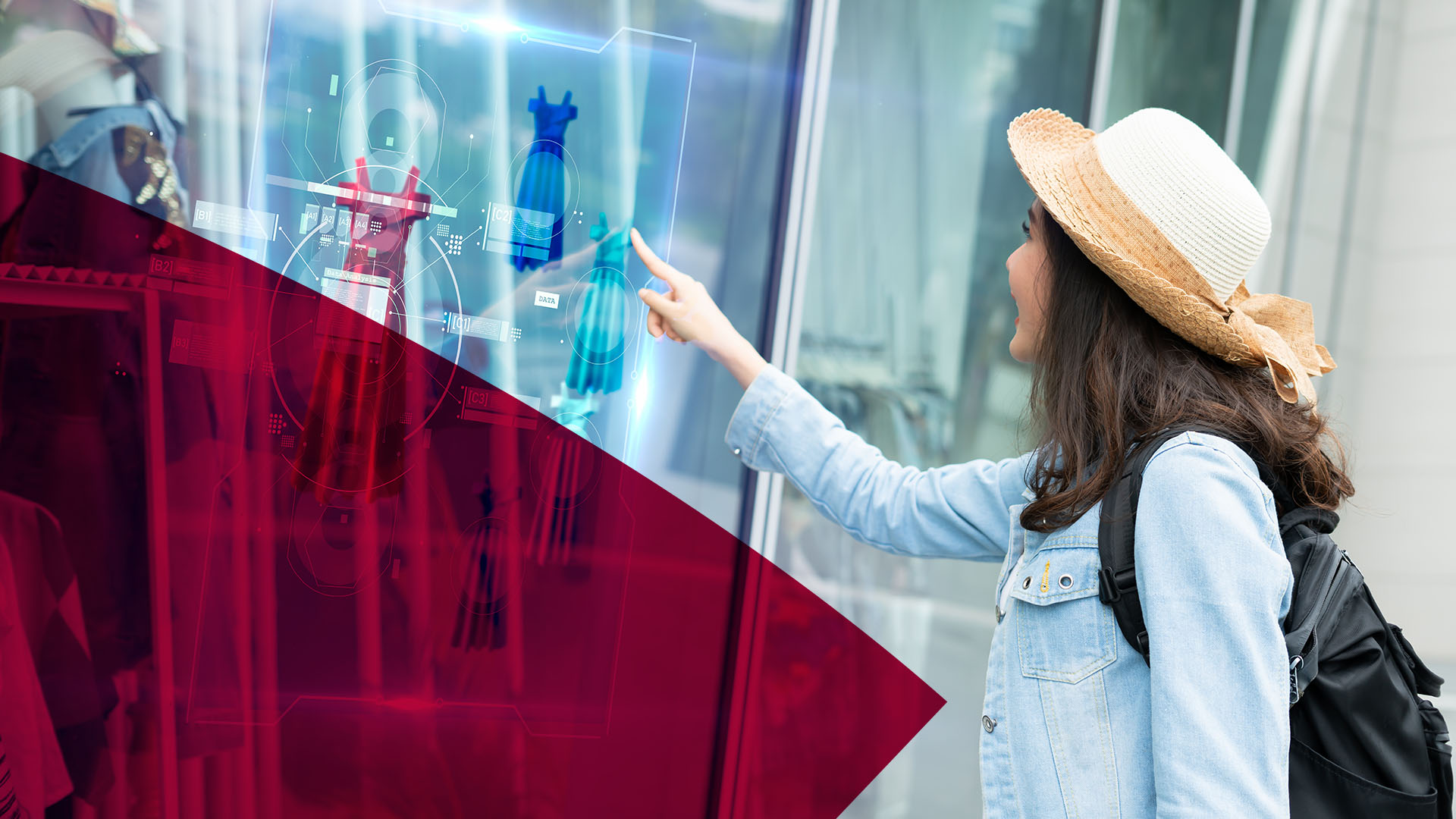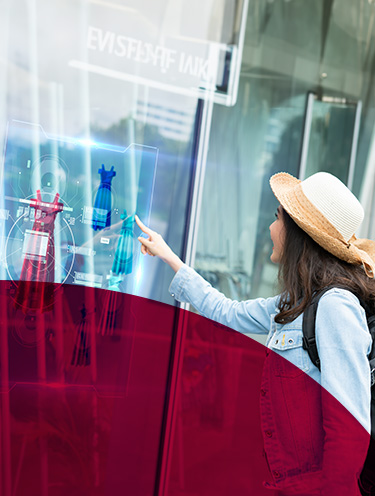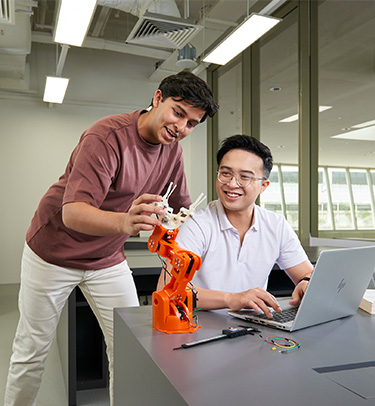Artificial Intelligence (AI) has seamlessly woven itself into the fabric of global businesses and our everyday technology. From controlling your smart home devices to determining your social media feed, its applications are far-reaching.
But artificial intelligence isn't just shaping our daily experiences. The broader implications also signify that diving into AI no longer means a career confined to the STEM (science, technology, engineering and mathematics) fields. Instead, it's a gateway to unlock diverse, compelling opportunities.
Applications of Artificial Intelligence in Non-STEM Fields
From streamlining operations to enabling the extraction of meaningful data insights, AI is revolutionising sectors through diverse applications. Let's delve into some examples of the fields where artificial intelligence is making significant differences:
1. Fashion
AI is revolutionising the fashion landscape in a myriad of ways. At its core, AI models trained on historical inventory and sales data to empower business management teams to forecast future demand with greater precision, thus optimising stocking to minimise waste and bolster profitability. This is echoed in the statistics shared by Mckinsey, which revealed the application of AI in supply chain forecasting led to a 20% to 50% reduction in errors.
On the supply chain front, AI is just as transformative. Predictive algorithms streamline production schedules, and AI-enhanced robots, faster and more accurate than their predecessors, handle tasks ranging from fabric cutting to sewing. This not only enhances worker safety but also trims down production costs.
Meanwhile, leveraging AI to sift through data from the web and consumer behaviours can also help designers identify up-and-coming fashion trends. This, along with the help of generative AI tools, accelerates design conceptualisation and streamlines the creative process.
A testament to this synergy is the AiDLab fashion designers in Hong Kong. With generative AI, they not only produced a collection of runway apparel but also had the freedom to explore more designs without incurring the cost of producing numerous expensive samples.
Artificial intelligence's ability to parse through consumer data also translates into hyper-targeted product recommendations that create a more attuned retail experience. And as we edge closer to the metaverse, tools like virtual try-on applications - an alchemy of AI and computer vision, can show users how outfits will look on them even before they hit the 'buy' button. A case in point the the adoption of virtual fitting rooms by Adidas and ASOS, which offers a 3D rendering of consumers’ bodies, granting them a virtual try-on experience from the comforts of their homes.
By using such tools, marketing teams can enhance the shopping experience and customer satisfaction. More importantly, it also lowers the risk of mismatched purchases, paving the way for brands to increase successful sales.
2. Sports
As we step away from the glamorous runway into the roaring sports stadiums, it's clear that AI is also an MVP in the field. For instance, consider how the role of a sports coach can be elevated by the application of artificial intelligence. With the help of AI algorithms, they can dissect every move to grasp FIFA players' strengths and areas for improvement, paving the way for sharper game strategies and increased chances of clinching victories.
Meanwhile, injury prevention, a crucial concern for every sportsperson, also gets an AI-powered boost. By delving into biomechanical data, artificial intelligence tools can provide insights that make the difference between a career-threatening injury and a safe slide to home base.
And for those behind the scenes, orchestrating those live sports matches we eagerly attend? Artificial intelligence is changing the face of fan experiences as we know it. An example is sports event managers harnessing AI chatbots to scan social media to spot and eradicate prejudiced remarks or the dissemination of false information. Coupled with virtual reality (VR) projections, as in the case of the NBA’s VR streaming on Meta, event organisers can offer a more immersive experience that takes fan engagement to greater heights.
3. Marketing
In marketing, AI is also an innovative force rewriting the playbook. With machine learning, the acquisition and placement of digital ads are automated, streamlining the work of advertisers. But it's not just set-it-and-forget-it; these artificial intelligence algorithms internalise and adapt from campaign outcomes. This means the AI algorithms can self-assess and iteratively refine strategies to enhance the advertising impact.
Complementing this is the application of artificial intelligence in content creation. With AI tools like ChatGPT, marketing specialists can produce engaging, human-like copies within a shorter time frame. This thus empowers these professionals to save on time spent on content creation and spend more effort on high-value strategy planning.
Such technological prowess leads to hyper-targeted marketing, allowing brand managers to strengthen the effectiveness of branding outreach. The result? More meaningful customer interactions, heightened conversions, and more efficient ad expenditures.
Step into the AI Frontier with PSB Academy
As various industries pivot towards AI-driven solutions, the opportunities for those with the right qualifications expand exponentially. Whether you're aiming to redefine the fashion landscape or innovate within the sports arena, mastering AI could be your gateway to a fulfilling career. And with PSB Academy, you'll gain that expertise and a competitive edge in the job market.
To equip students in Singapore for the market of tomorrow, PSB Academy offers The University of Hertfordshire Bachelor of Engineering Honours in Robotics and Artificial Intelligence. Under this degree programme, you can immerse yourself in practical experience across various topics.
On the other hand, the Machine Learning and Operating Systems for Applications modules enable you to harness artificial intelligence to predict consumer behaviour and boost conversion. Other subjects like digital computing have direct applications in finance, enabling you to create AI-backed trading algorithms that help traders with accurate trend analysis before executing trades.
The icing on the cake? Enrolling in this engineering course grants you access to our purpose-built STEM Wing, complete with high-tech computer labs furnished with specialised software like MATLAB. Besides this, PSB Academy also has a dedicated Robotics and AI Lab, where students can collaborate on projects and participate in experiential learning. The lab is equipped with specialised machines such as Arduino Robotic Arms, TurtleBots, and a Jupiter Robot.
This hands-on environment ensures that you move beyond theory, mastering the practical application of your knowledge. Augmenting this is the chance to helm various team and individual projects throughout the course, which helps you build a portfolio to demonstrate your expertise while enabling you to ease into your future career easily.
Ready to redefine the future? Begin your transformative journey with PSB Academy and set the stage for exciting career opportunities in a range of industries, starting with this robotics and artificial intelligence programme. Enrol in our degree programme today, or browse our student stories to get a glimpse of life at PSB Academy.




 TOP
TOP



_2.png)

